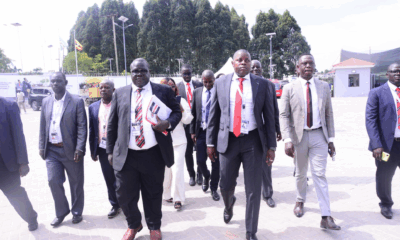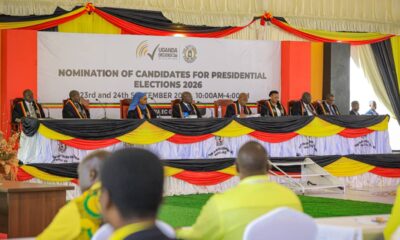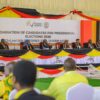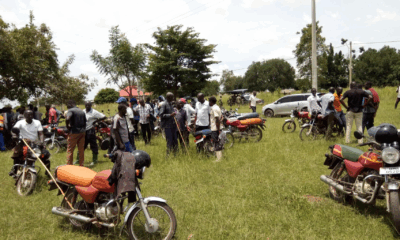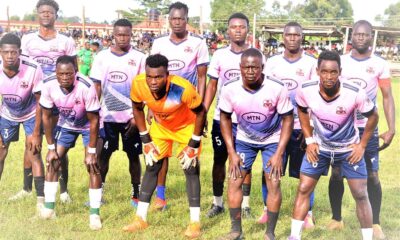Analysis
Will young leaders please stand up?
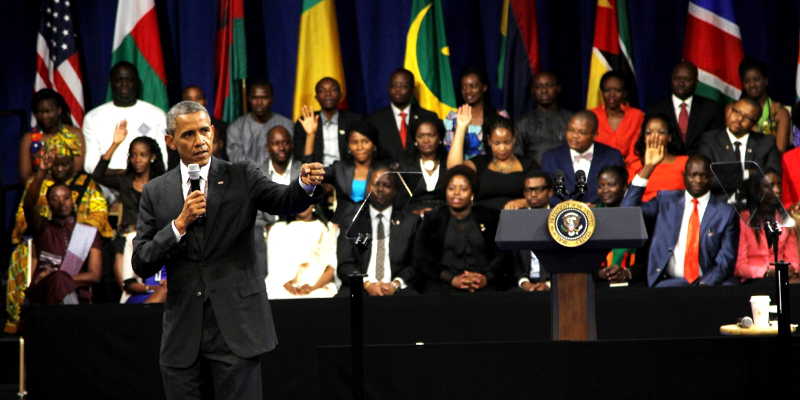
US President Barack Obama speaking to Mandela Washington Fellows in 2014. Will his message be heard by Uganda’s youth?
Around this time last year, civil society and government.
Obama’s youth focus was informed by the fact, as he pointed out in his address to the 500 young leaders who gathered in Washington DC, that Africa is the youngest and fastest-growing of the continents. Uganda was represented by some 19 youths who came from different spheres of society. Another group has been selected for the 2015 round.
But the Obama initiative, along with similar such leadership training opportunities offered by other institutions are of critical importance to the future of Uganda and Africa as a whole because many young people are largely failing to face up to the greatest challenge of their time – to take charge of their affairs and shape their destiny.
Some might recall that about three decades ago, Uganda and much of East Africa had very vibrant and politically active young men and women. In fact, some of this astute political consciousness resulted into political pressures that forced the youth of the time to resist political oppression.
Makerere University, despite its relatively small population at the time compared to the current number of students now in higher institutions, was a source of political activism and a platform for ideological orientation.
The greater majority of what became the National Resistance Army (NRA), including people like Kale Kayihura, Noble Mayombo, Mugisha Muntu, Aronda Nyakairima were university students or fresh graduates who joined the bush war that brought President Museveni to power. The generation that that came after, despite its overwhelming size, lacks the awareness shown in the 1970s and 80s.
Renowned human rights lawyer Ladislaus Rwakafuzi looks back to his university days with a lot of nostalgia.
“When we were growing up and during our university days, we had some ideological shaping. We had icons whom we emulated such as Nkrumah and Nyerere. Today, our youth do not have any ideological definition,” says Rwakafuzi.
He adds: “These days, the biggest attraction for the youth are beauty contests, gambling, music shows and consumerism. Very few times, will you hear youth engaged in debates about our country the way did.”
In fact, some people worry that many young people in Uganda simply have no opinion on critical subjects of their lives such as unemployment, as shown by their apathy towards politics. Rwakafuzi argues that lack of ideological orientation is a dangerous precedent for Uganda; “Because we cannot expect young people to be vanguards of change.”
And yet, Uganda faces no greater challenge, perhaps, than the challenge of political leadership, that can address the needs of majority of the country’s young population, including widespread unemployment, poor health and food insecurity.
The growing importance of those challenges as illustrated by the thousands of applications for a single job advert, rising food prices, show that the task of overcoming those challenges will be much harder for today’s young generation than one that came before it. Others have argued as well that the seriousness of these challenges are enough proof that the current leadership has failed to address them and therefore needs a new team to manage them.
As Hashim Wasswa Mulangwa, the Chief Development Officer at the Rwanda Development Bank, argued recently at the MUBS economic forum, the people controlling Uganda’s economy have ran out of ideas that can bring about change and therefore need to give chance to younger more dynamic people.
He said: “The same people who managed Uganda’s economy twenty, thirty years ago, are the same people managing it today. We must change the leadership that manages the economic apparatus of Uganda.”
Seventy percent of the population is below 30 years, which by interpretation means that the youth comprise the biggest number of voters. They are thus potentially a solid and powerful electorate for any promising young leader who can improve the fortunes of young people and indeed the country.
Evidence suggests however that Uganda’s young people have taken on a spectator role in politics. They have for instance been associated with plots whose aim is to prop up the old guard than advance they own agendas.
You will probably recall that Evelyn Anite, the National Youth Female MP who was later named State Minister for youth, sponsored the NRM sole candidate project that will seek to extend President Yoweri Museveni’s stay in power to 35 years. Other NRM youthful leaders like Richard Todwong and Dr. Kenneth Omona have enthusiastically supported the sole candidate project of President Museveni and are busy recruiting young people to support the President.
On the other hand, former Prime Minister Amama Mbabazi’s camp has been linked with the Poor Youth group ostensibly to lend support to the former premier’s presidential bid. The opposition seem to have crafted similar strategies as shown by a group of youth who petitioned FDC’s Dr. Kizza Besigye to campaign for FDC flag bearer.
Some have argued that the failure by President Museveni and his 1986 liberation team to relinquish power to a younger generation has suffocated the leadership aspirations of many young people in Uganda.
Proponents of this view cite the President’s recent tendency to surround himself with retirees into cabinet and other senior government positions that would have helped the youth to garner experience, resources to enable them take power.
Supporters of most sitting politicians have countered this logic with explanations that they always win their way into office in free and fair elections. Critics say the elections have been managed to favour their continued stay in power.
Rwakafuzi blames the poor state of the economy for allegedly frustrating many young people.
He adds that the break down in the state has undermined access to vital services including access to a good quality education, and health services as causes of the dangerous trend.
But Julius Lugaya, an artist and one of the founders of the comedy outfit Theatre Factory argues that part of Uganda’s leadership challenge arises from the low level of mentorship in formal settings such as government, business and civil society.
“The advantage with formal working environments help to inculcate discipline and ethics. Many companies for instance expose workers to leadership challenges by making them to head sections and departments even on a rotational basis,” argues Lugaya. The high level of unemployment in Uganda, according to Lugaya has deprived many young people the opportunity to have a chance at leadership in several spheres of life.
Whether or not the Obama initiative can change the attitudes of young people towards leadership is anyone’s guess. What is certain though is that present and future desired by young people will have to be decided by themselves not others.
Comments



